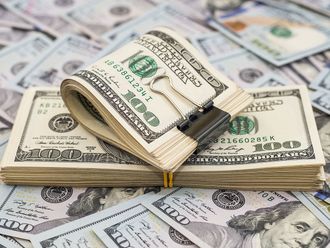Tokyo: Any effort by Japan to weaken the yen after it rallied to a 15-year high may fail without help from the US and the European Union, currency strategists say.
Speculation that Japan may intervene in the foreign-exchange market rose after Prime Minister Naoto Kan said on Friday the government is ready to take "bold" action. Following his comments, Barclays Capital economists said in a report that "intervention appears imminent".
Japan would need coordinated help to depreciate the yen, and that's unlikely because the US and Europe want their currencies to stay relatively weak to help bolster exports and keep their own economic recoveries afloat. Intervention by the Swiss National Bank couldn't prevent the franc from appreciating to a record high against the euro this year.
"Actions by the Bank of Japan unilaterally probably wouldn't change sentiment over the medium term," said John McCarthy, director of currency trading at ING Groep NV in New York. "If they somehow manage to get the European Central Bank and the US Treasury to concur and to assist in their efforts, that certainly would make a difference. But I don't see that happening at all." The yen closed the week at 85.22 per dollar, after reaching 83.60 on August 24. It's up 9 per cent this year against the greenback and 22 per cent versus the euro, closing at 108.72. It rallied to an all-time high of 79.75 to the dollar in April 1995, before weakening to 124.13 in June 2007.
Capital flight
"Volatile movements in the currency market have a negative impact on economic and financial stability," Kan told reporters after speaking to business executives in Tokyo. "We are ready when necessary to take bold measures."
About 40 per cent of Japanese manufacturers would relocate factories and development sites abroad if the yen continues to trade at 85 to the dollar, a survey by the Ministry of Economy, Trade and Industry found.
The number of companies saying profits will decline because of the yen's strength rose to 65 per cent from 16 per cent in a May survey, when the currency was trading at 90 yen to the dollar. More than 50 per cent said they would see a drop in earnings from the yen's strength against the euro.
"I want Tokyo to hear our wailing," Suzuki Motor Corp's Chairman Osamu Suzuki told reporters on Thursday.












